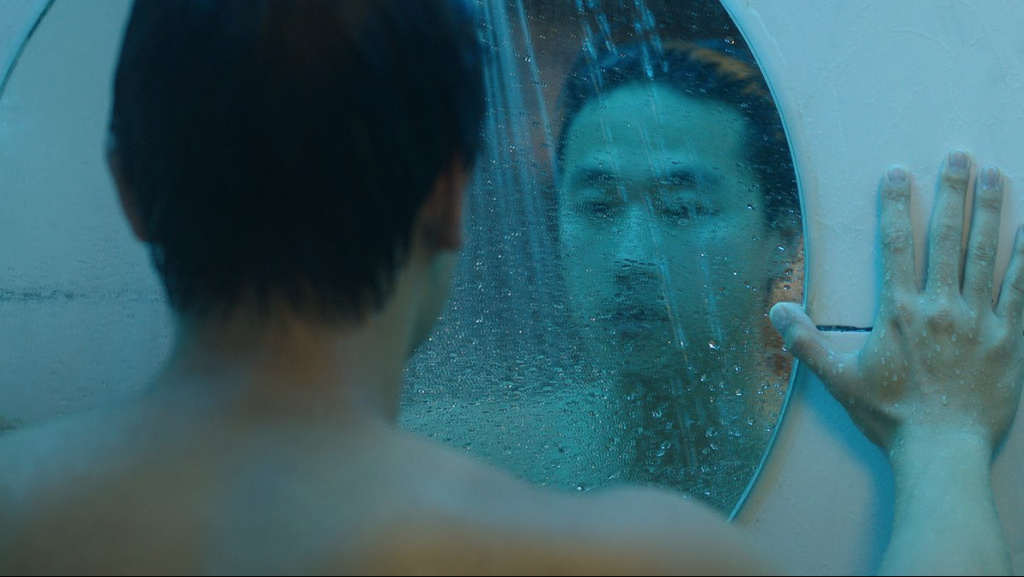Andrew Ahn is a storyteller with much to say, an urgency anyone will feel deep in their gut immediately into his feature debut, “Spa Night.” A new and necessary voice in indie cinema, he is a gay Korean-American filmmaker, two aspects of identity that inspire an anxious, shattering search for peace of place and identity within this incredible movie competing in Sundance’s U.S. Dramatic Competition.
His lead character, David (Joe Seo), is defined by the places we often see him in. He lives with his first-generation immigrant parents (his mother, played by Haerry Kim and his father, played Youn Ho Cho, both wonderful) in modern Los Angeles’ Koreatown, where they operate a restaurant and attend mass. The latter provides a sense of community and near-impossible standards, that everyone, including his parents, must live up to. A third place is the local spa, where we meet him and his family at the very beginning of the film, cleaning their bodies. The spa is familiar to him as a piece of family and of social culture—so much that even when he goes out drinking with other Korean-Americans, they detox at the local spa—but it has a new relevancy as a place in which to explore his sexuality. He does not say anything about this part of his life to others, especially his parents who can barely be excited about him feigning interest in marrying a white girl. He only expresses this part in his life through extended glances at bodies already half-naked in the spa, a silence that Seo swallows with nervous gulps. David would never speak to his parents about this—they could barely handle talking about him potentially being with a white girl—for fear of disappointing his parents. But would they do all that he fears if he was just honest with them? “Spa Night” is about the shame and distress of disappointment from others that inhibits us.
Ahn brilliantly expands the experience of this question beyond David’s sexuality to the story of other Americans, his parents, trying to find their own place in the country. Not long after we learn about their restaurant, we see that it has gone out of business. When a fellow, smiling parishioner asks the family about what happened to it, the mother tells her that they sold it after receiving a nice offer from a young family. The woman believes them. The family does try to find other opportunities, but can only keep treading water, something that begins to take a toll on their self-pride, and their connection to one another. But during their monologues about promised pasts as Korean immigrants and uncertain futures as US citizens, Ahn shoots David’s worn-down parents with profile close-ups, visually mirroring the way we imagine definitive Americans on coins. Their stoicism proves to be a survival tactic against sadness, as “Spa Night” descends with the beauty of a great American tragedy.
Ahn’s script is impressively tight, its false notes (like the visual bookend of David running, making for a anticlimactic closing shot) minor in comparison to the huge creative successes in this film that excels in extended passages. A sequence of David hanging out with the parishioner’s son Eddie and his lady friends beautifully exemplifies the harmful double standards of male closeness—it’s apparently a gross joke that two men might touch lips (for a game of “gay chicken”), but it’s within fair-game macho boundaries to be naked together in the spa later that night. These toxic mores only make the film’s third act more vivid, in which David starts working at a spa where men sometimes quietly hook up, and gets a first-person view of the interactions that could make him happy. Like in scenes involving his parents sharing this muted sense, these often-wordless sequences don’t waste a single gaze, while their emotional stagnation starts to hurt the viewer, too.
The wonder of “Spa Night” is how it focuses on very specific parts of identity, with perspectives not often seen by the amount of people that should see them, and it creates something universal. It is about far more than muted sexual curiosity, or only the immigrant experience. Its discouragement about the pursuit of happiness is an intimate reflection we all recognize.












